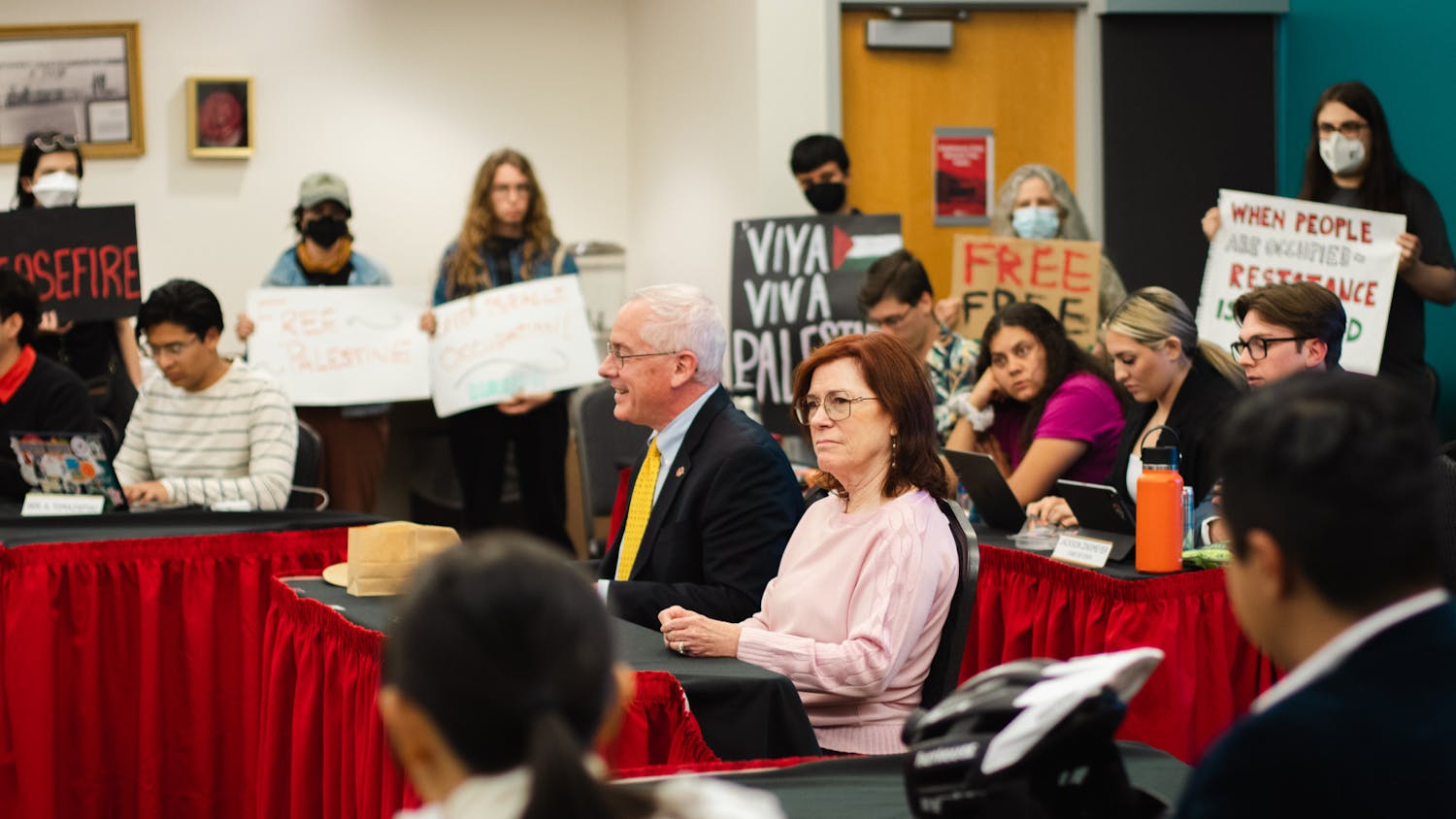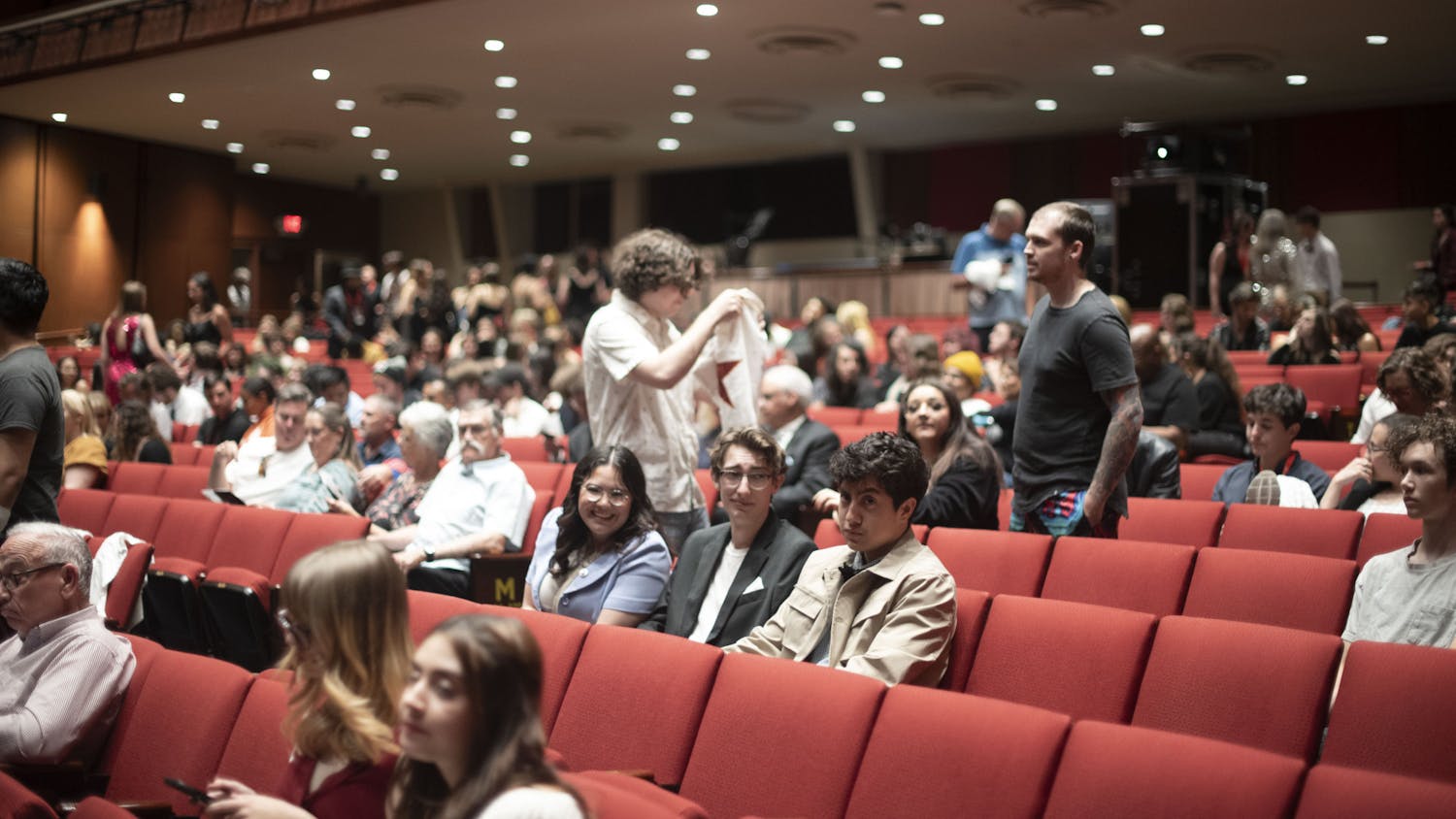Editor’s note: This column is in response to Will Thomson’s column, “Raise wages to lift city’s residents out of poverty,” published in the Daily Lobo last Thursday. In the column, Thomson argues in favor of raising the minimum wage.
by Marcos P. Portillo
Daily Lobo guest columnist
I don’t quite understand why those who call for a raise in the minimum wage don’t take the time to analyze the effects of such a policy beyond stage one. These individuals treat raising the minimum wage as some panacea for the poverty of the world.
If we can cure poverty by mandating higher wages, why stop at $8.50? Why not $10 or $15 or $20? Make it illegal to be poor.
That’ll cure the problem! I recognize that the intentions are noble, and I can understand the frustration regarding the people who struggle financially, and that we strive to bring everyone up from poverty. However, rash decisions, like arbitrarily raising the minimum wage, will hurt those very people the policy was intended to help. There are unintended consequences to these feel-good intentions.
American politics are too quick to judge the effectiveness of a policy based on its intent rather than its effects. “The road to hell is paved with good intentions.” Let’s take a closer look at the minimum wage beyond stage one.
Will Thomson keeps mentioning how these “families” can’t survive off the minimum wage of $7.50. Many times, what is portrayed is a single mother struggling to scrape by on minimum wage. It is not exactly as simple as that. According to a recent Rio Grande Foundation study of Albuquerque minimum-wage earners, only about 10 percent of those who would be affected are single parents raising children on their own; 40 percent of minimum-wage earners live at home with their families and relatives; 17 percent live with a spouse who also earns an income.
The average family income of those employees who would be affected by the wage increase is more than $55,000 a year. So it isn’t as simple as saying how those affected are surviving on $15,000 a year when the vast majority of those who would be affected are not single parents supporting a family. Many of those earning minimum wage are new into the workforce, or holding a side job to earn extra spending income. These job opportunities give new workers the chance to gain important job skills that will allow them to advance to higher-paid positions. It is their stepping stone, the bottom rung of the ladder of opportunity. Raising the wage above market prices will only price many of these individuals out of the market.
New Mexico’s teen unemployment rate is already about 22 percent.
These lower-productivity workers will lose that bottom rung that would have given them the skills needed to keep climbing. The higher we raise the low-hanging fruit, the higher that unemployment number will go up. An employer is simply not going to pay employees more than the revenue they bring in. Raise the cost of labor, and the entrepreneur will have to compensate in other areas. They’ll either invest in capital improvements that will automate the lower-productive jobs, remove or decrease certain benefits to the employee, not hire additional workers or maybe even fire the marginally productive workers.
Let’s examine this in a hypothetical scenario. Once upon a time, there was this low-skilled worker: an inexperienced teenager with no skills, maybe his first job — we’ll call him Homer. I’m willing to hire him if he brings in more revenue than it costs to pay him. Let’s say he brings in $8 worth of revenue. I make $0.50 off this employee in profit. Another worker, we’ll call him Pluto, who is more experienced — he’s been working for me for a while — brings in $9 worth of revenue. He’s a pro at flipping burgers and can flip several at once. I’m receiving $1.50 in profit from him.
Then our great planners decide to raise the minimum wage to $8.50.
Well, as the owner of this hypothetical enterprise, I am going to have to let poor Homer go. He’s only bringing in $8 worth of revenue but it costs me $8.50 to employ him. I lose $0.50 every hour I keep him employed. Pluto, fortunately, is now earning $8.50, which is much more in accordance with the value he brings to my business. I now only profit $0.50 from employing Pluto — well, until the next wage hike.
Get content from The Daily Lobo delivered to your inbox
The result of a wage hike in this hypothetical scenario is that Pluto certainly did benefit from it. He’s definitely earning more for what he does. But who is to say I wouldn’t have eventually given him a raise for being a more productive worker in order to keep him working for me and not my competitors? And if I didn’t, who is to say he would not have eventually left me for a higher wage offered by a competitor? Instead, poor Homer lost the job and wasn’t even given a chance to learn the skills and gain the experience to become more productive. He’s been priced out. His productive capacity is $8 an hour, yet no one can effectively hire him since he costs more than he produces. Even though he is willing to work for less, it is illegal for him to do so.
Even though this is a simplified hypothetical, it demonstrates the unintended consequences of artificially fixing wages. Why do we accept interns making below minimum wage? At times, they earn nothing at all. Is that slavery? Is that criminal? They voluntarily decide to work for someone for nothing. They must be psychologically unstable! Not really. The intern is gaining valuable skills and knowledge and s/he deems that more valuable than a paid position somewhere else. It is their bottom rung on their way up the economic ladder. It is the same situation for those lower-skilled workers earning the wage agreed upon between employer and employee.
Raising the minimum wage in Albuquerque is not the cure to poverty. That is absurd. If it truly was, I’d like to propose raising the minimum wage to $100. Instead, what we need is an environment that welcomes entrepreneurs and encourages creative minds to enter the market and compete in this free marketplace of ideas. We need a city that ensures the protection of private property rights and contract rights and does what is necessary to protect against fraud and corruption.
A free society eliminates poverty, not a centrally commanded and controlled one. Allow free individuals to negotiate their labor contracts with each other and stop the paternalistic, forceful governing that hurts the more it tries to help.





